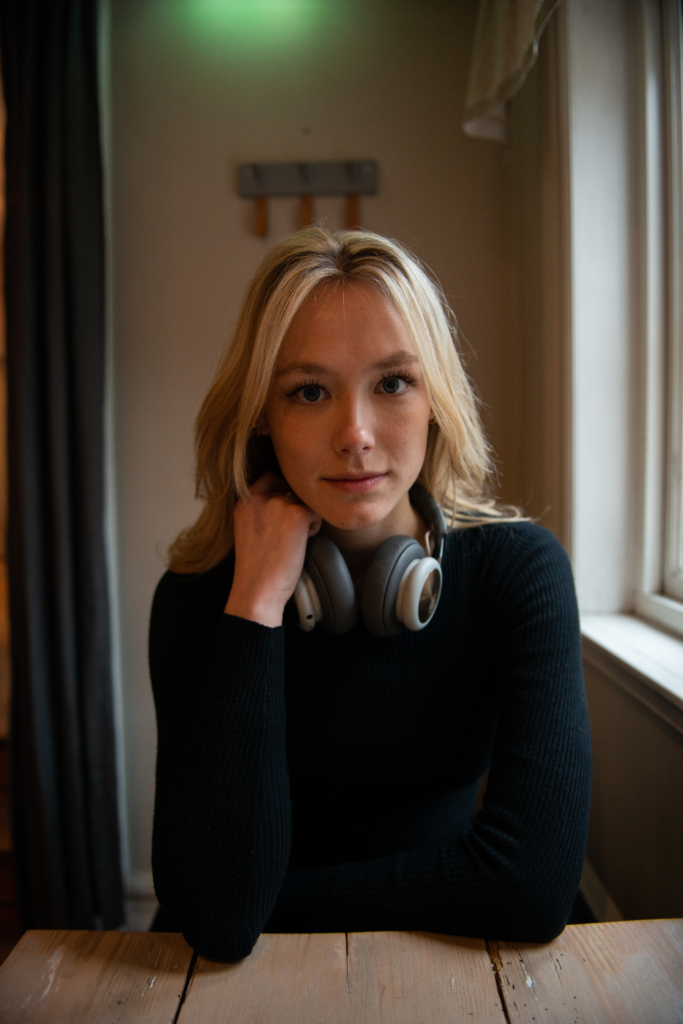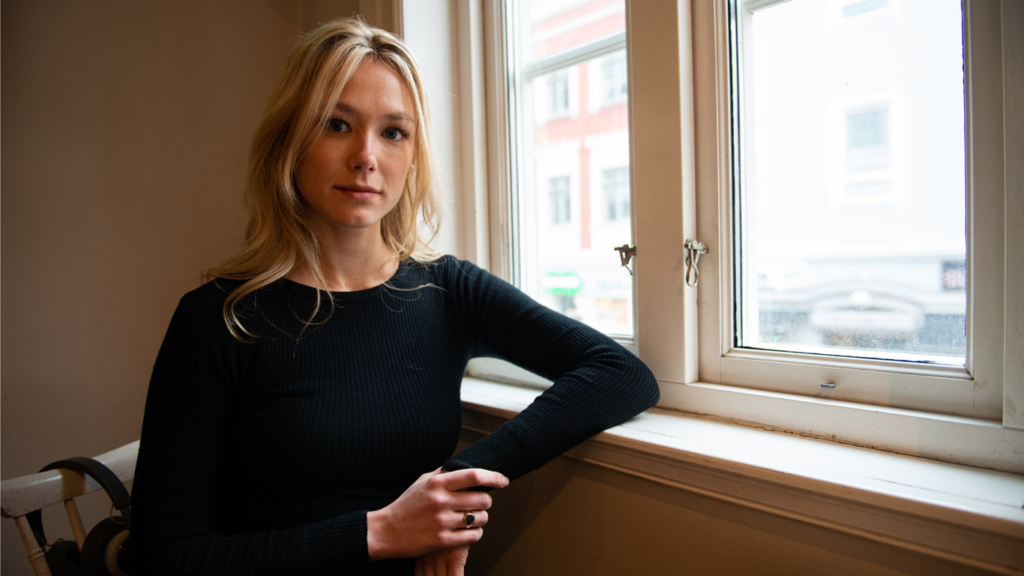Microsoft Sweden’s 2021 Tech Girl of the Year, Matilda Andersson, would like to live in a world where “Tech Girl of the Year” awards aren’t needed. But until that’s possible, she’s going to use her award to be a role model for other girls in tech.
For Matilda Andersson, tech is a way of documenting human behavior, and maybe even shaping it for the better.
“Tech is a tool we can use to understand, or enhance, or improve,” she says.
Matilda Andersson is an LTH MA student in Computer Science with an emphasis in Machine Intelligence, a board member at Pink Programming – a Malmö-based organization that inspires girls and women to try programming – and, in March, was named Microsoft Sweden’s 2021 Tech Girl of the Year (“Årets tech-tjej”).
The award, which Microsoft has given out for the past 19 years, aims to inspire more women and girls to study subjects in tech by highlighting female role models in the industry. And, according a 2020 report on women in IT, those role models are needed: 8 in 10 of the young female respondents said they didn’t have a female role model in tech. The report also indicated that young women have difficulty seeing themselves in what many consider the typical, or stereotypical, tech environment – meaning dominantly male.
“The passion and the curiosity for tech is the same, whether you’re a guy or a girl… but [the gender ratio in tech] is unbalanced today, and we have to do something about it,” says Matilda Andersson.
“One part of the solution is this kind of award. Microsoft is trying to show role models, and show younger girls that the mental image we have of technology doesn’t have to be the way we think of it. It is people from all backgrounds and all ages.”
But can awards like this reinforce the ideas that women in tech are unusual – that being a woman in tech is so outside of the norm that it deserves an award?
“I don’t think we’d be sitting here having this conversation if it wasn’t for the ratio being as it is,” says Matilda Andersson. “So we can also try to use [this inequality] as a voice, to try to make it a different way… We need this kind of award until the point where we don’t need it anymore.”
When I ask her if she wants to live in the world where women in tech awards aren’t needed, there’s no hesitation when she answers: “Yes!”
Matilda Andersson found her way into tech via an event held by Pink Programming.
“I never saw myself as a programmer or a techie girl. I was searching for something I found interesting and impactful, where I could actually make a difference… [The Pink Programming event] was when it clicked for me: this is something I could do.”
When I ask her about who her female tech role models are, she says she admires Vanja Tufvesson, Pink Programming’s founder, for taking action and “doing something when other people didn’t.”
Vanja Tufvesson was equally complimentative of Matilda Andersson and her work with the organization:
“I have followed Matilda’s journey since she first tried coding at one of the Pink Programming events,” says Vanja Tufvesson. “She is very fascinating and inspiring, as she not only has a huge drive to learn, but also to give to others. She is a very appreciated teacher at Pink camps and she is a role model for other women who might not see themselves as programmers in the beginning.”
Now, as the Tech Girl of the Year for 2021, Matilda Andersson will be a role model on an even larger stage, attending events and sharing her knowledge all in the pursuit of inspiring more women and girls to explore tech.

Matilda Andersson’s award comes at a time when the cultural mood toward tech is shifting. So called “Big Tech” companies like Facebook and Google are facing public criticism – and government investigation – for spreading misinformation, using monopolistic business practices, and invading privacy. The engine rooms of these platforms are powered by artificial intelligence and machine learning – the same technologies Matilda Andersson is learning to wield.
But Matilda Andersson is adamant that tech is only as good or as bad as we program it to be. “Tech is a tool,” she tells me, more than once. “Everything that can be used can also be misused… It’s like fire. Fire can cause accidents, you can misuse fire. But without it, we wouldn’t have the industrial revolution. We wouldn’t be the society we are now… there are always bad sides of innovation. I want to be a part of creating something good with technology.”
And what kind of good does she want to create? She says she wants to use tech to improve mental well-being. She tells me that she believes that by observing and quantifying human behaviour, we can use machine intelligence to gain deeper insights into our thoughts and actions.
Looking to her future, Matilda Andersson is keeping an open mind. She says she’ll start a company some day, but she isn’t sure if she’ll do so directly after finishing her studies in June, or whether she’ll work for an established company for some time first.
“[What I decide to do next] comes down to opportunities, and if I meet the right people,” she says. ”I have a very big end-goal, and whatever I do next is what I believe will take me close to this goal.”
Her LinkedIn profile says her ultimate goal is “digitizing human consciousness.” When I ask her about that, she says she doesn’t mean that she thinks tech can replace humans, but that it can help us where we’re weak.
“I don’t just want to turn us into robots just because it’s a cool thing to do. I want to search for a way in which we can use tech that integrates with the human body so that we can become the best versions of ourselves.”









